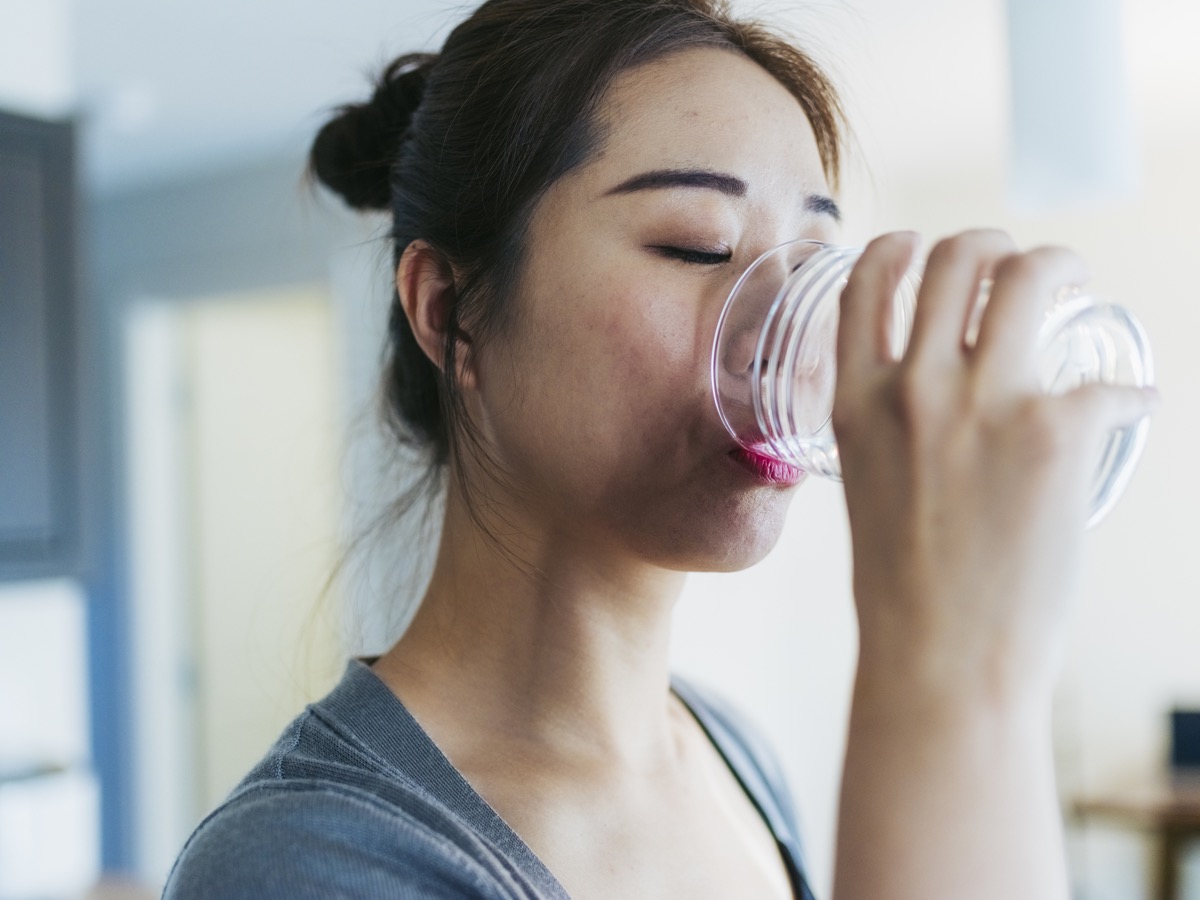However, research suggests that that icy beverage could have some serious drawbacks when it comes to your health, too. Before you take another sip, read on to find out the surprising negative effect of drinking ice water, according to science. RELATED: Drinking This Kind of Water Increases Your Parkinson’s Risk, Studies Show. If you find yourself plagued by regular headaches, you may want to opt for room temperature water instead of ice-cold water this summer. According to a 2001 study published in the journal Cephalalgia, among a group of 669 women studied, 51 reported developing a headache after drinking approximately 5 oz. of ice water through a straw. The study’s authors explained that it was the cold stimulus to the study subjects’ palate that was likely to have caused this effect. A 2019 review of research published in Current Neurology and Neuroscience Reports found that ice water actually has a more pronounced effect on pain stimulus than ice itself. “Ice water appears to provoke more frequent and higher pain intensity with a shorter latency” compared to cold stimulus pain related to ice cubes, the authors wrote. For the latest health and safety news delivered straight to your inbox, sign up for our daily newsletter! While headaches can happen to anyone, migraine sufferers may be more likely to suffer the ill effects of drinking ice water than those unafflicted by the condition. According to the Cephalalgia study, women who had suffered from at least one migraine attack in the 12 months prior to the study period were twice as likely to develop a headache after consuming the ice water. If you want to avoid developing regular headaches, but just can’t imagine drinking water without ice in it, giving up the straw in your glass may be a good first step toward being pain-free. In a 2012 study published in the FASEB Journal, as a means of determining the exact mechanism by which ice cream headaches develop, study subjects were specifically directed to drink ice water with a straw against their palate.ae0fcc31ae342fd3a1346ebb1f342fcb According to the study’s authors, cold stimuli applied to the palate can cause a sudden increase in blood flow to the brain’s anterior cerebral artery, causing brain freeze, which study author Jorge Serrador, Ph.D., an associate professor in the Department of Pharmacology, Physiology & Neuroscience at Rutgers University, posited might be similar to what occurs when people experience migraines. However, by limiting direct contact between cold stimuli and the soft palate, both brain freeze and longer lasting headaches may be avoided. While pounding ice water may make your headaches worse, that doesn’t mean you should skimp on the clear stuff to avoid headache pain this summer—just maybe drink it at a slightly warmer temperature. According to a 2005 control trial published in the European Journal of Neurology, among a group of eighteen migraine sufferers, those who increased their water intake by 1.5 liters per day decreased the time they spent experiencing headaches by 21 hours over a two-week period and reported lower headache intensity. RELATED: If This Happens When You Eat or Drink, You Need Your Thyroid Checked.



